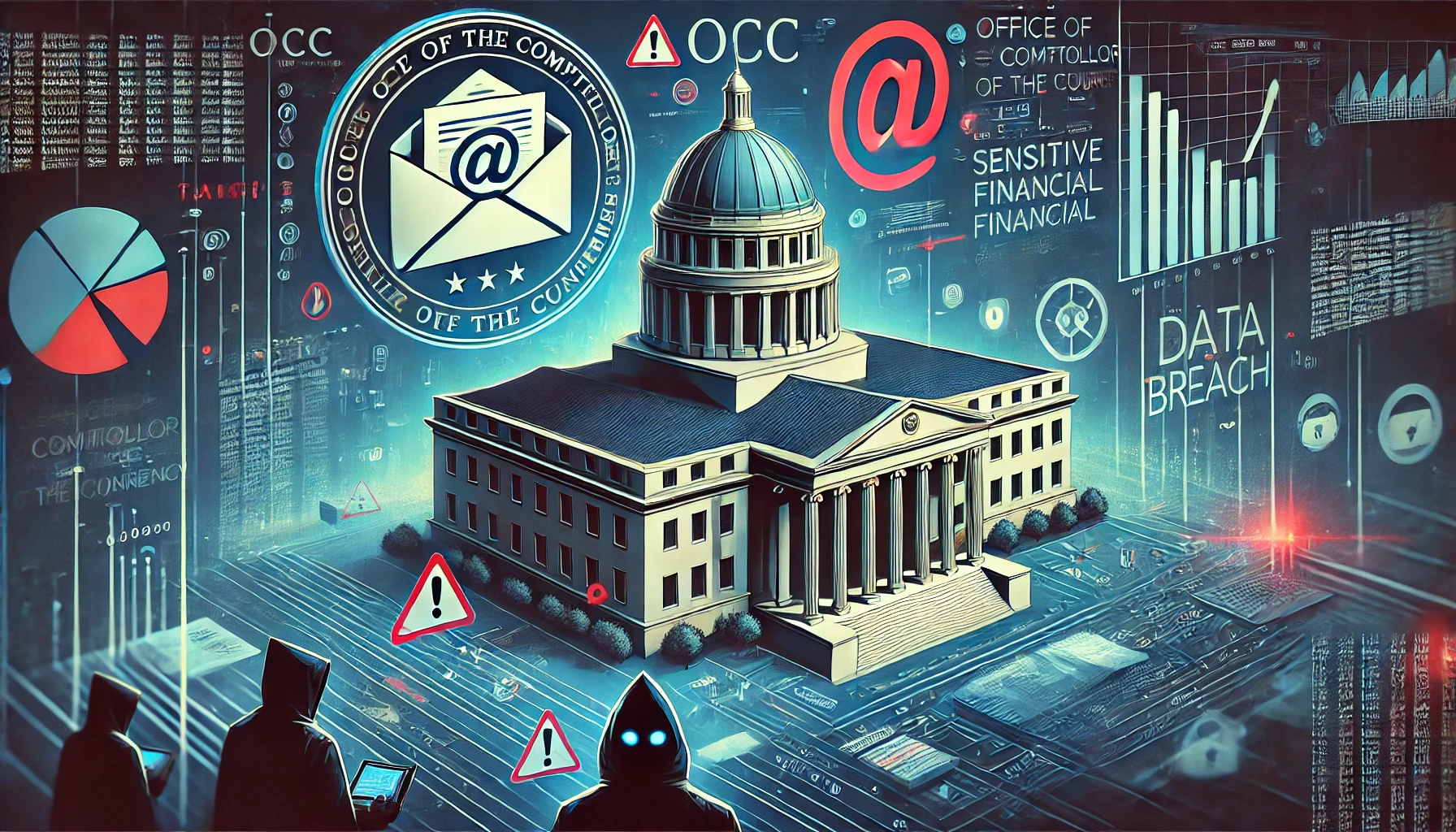On April 8, 2025, the Office of the Comptroller of the Currency (OCC), one of the most influential banking regulators in the United States, publicly disclosed a major cybersecurity breach that exposed sensitive financial data tied to federally regulated institutions. The breach, discovered back in February, targeted OCC’s email systems, compromising accounts used by senior officials and staff members involved in bank oversight.
This incident has sent ripples through the financial sector, as the OCC plays a critical role in regulating national banks and ensuring financial stability. The cyberattack is now raising questions about cybersecurity preparedness across key federal agencies that manage sensitive economic and financial data.
📧 How the OCC Email Hack Happened
Initial reports confirm that attackers gained unauthorized access through an administrative email account, exploiting what officials describe as longstanding organizational and structural vulnerabilities. Although the OCC has not yet attributed the breach to any specific threat actor, the nature of the access—via privileged email accounts—suggests a targeted and sophisticated campaign.
The breach exposed confidential communications, internal documents, and non-public financial data concerning banks under the OCC’s supervision. The full extent of the breach is still under investigation, but the affected information may include sensitive insight into bank liquidity, capital planning, and compliance assessments.
🏦 Impact on the U.S. Financial Sector
Despite the breach’s sensitivity, officials have so far reported no immediate financial instability resulting from the incident. However, major financial institutions—including JPMorgan Chase and BNY Mellon—have reportedly limited the information they now share with the OCC as a precautionary measure. This reaction underscores the trust-based relationship between regulators and financial institutions—and how that trust can quickly erode following a cyber incident.
Financial analysts warn that if confidence in data handling by regulatory bodies like the OCC is shaken, it could lead to reduced cooperation, slower regulatory reporting, and more fragmented oversight across the sector.
🔍 Government Response and Accountability
In the wake of the breach, the OCC has launched a comprehensive internal review of its cybersecurity policies, protocols, and incident response capabilities. Acting Comptroller of the Currency Michael Hsu emphasized that accountability is a top priority. In his statement to Congress, he admitted that the agency had ignored multiple warnings over the years regarding email security flaws and broader IT governance issues.
Lawmakers are now calling for increased oversight and funding to modernize cybersecurity infrastructure at federal agencies handling financial data. Some are also advocating for mandatory third-party risk assessments and cybersecurity stress testing—similar to what banks already undergo annually.
🛡️ Lessons for the Cybersecurity Community
The OCC email hack serves as a wake-up call not only for government agencies but also for private-sector financial institutions. The breach highlights the critical need for zero trust architecture, routine penetration testing, privileged access management, and continuous monitoring of communication systems.
In a digital era where email remains a primary channel for regulatory compliance and oversight, attackers exploiting such platforms can have nationwide consequences. This incident is a stark reminder that cybersecurity resilience must start at the top—especially for institutions that guard the backbone of a nation’s economy.
✅ Conclusion: Strengthening Federal Cybersecurity is Urgent
As investigations continue, the OCC will remain under scrutiny for how it handles recovery, transparency, and future prevention. The breach is likely to spark broader reforms across federal financial oversight bodies and may lead to harsher penalties for security noncompliance at the government level.
For CISOs, IT leaders, and compliance officers alike, the OCC breach is more than just a headline—it’s a case study in why proactive security investments are non-negotiable in 2025 and beyond.




